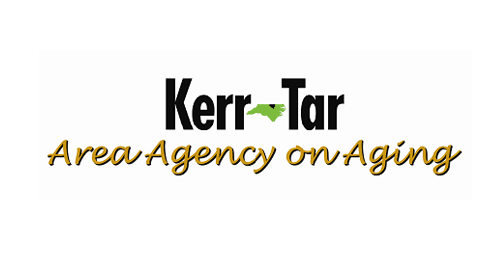Family members often find themselves pitching in to help older parents, grandparents or siblings with their daily living needs. Providing that extra support, however, often comes at the expense of their own needs. And sometimes, they just need a break.
The Kerr-Tar Area Agency on Aging can help those caregivers connect with resources to assist with the kind of service – for the care receiver and the care giver, said Austin Caton, Kerr-Tar family caregiver support specialist. Caton and Camille Koonce, a certified case manager and eldercare consultant, discussed some local options with John C. Rose on Thursday’s Town Talk.
Navigating through the various programs and services can be confusing and time-consuming, but Caton can help untangle the knots for families to access the option that best suits their needs.
One program is called respite care, Caton said, which provides unpaid primary caregivers a break from the responsibilities of caring for a family member. “The caregivers are just depleted,” he said. There are vouchers funded through the Older Americans Act that can help pay for this respite care so the primary caregiver can do things like go to the grocery store or get a haircut.
“Some people will use someone they know – from church, a neighbor, a family member not living in the home,” Caton said. Other people will contact a local home care agency, and Caton can provide a professional referral. The agency will conduct an assessment and set up a schedule for the respite care, he added. The voucher can help pay for this service.
Often, caregivers are juggling the demands of a full-time job and family obligations with providing that extra care for a family member in need. There are day programs that provide those needing care with a place to spend the day while the primary caregiver is at work. These programs can cost between $50 -$75 a day, but Koonce said it may be the best option for all parties involved. Day programs offer a way for participants to socialize with one another while being supervised by a staff of caregivers.
They explained the difference between home care and home health. Home care is non-medical care, like preparing meals, light housework, medication reminders and helping a care recipient get from a chair to a bed and back again –any daily activities that person may need help with. Insurance doesn’t cover this expense, but help with paying for it may be available through veteran’s programs or long-term care insurance, for example.
Nurses provide home health care, Koonce said, and includes wound care, administering IV medication and other things that require a doctor’s orders to perform.
“There’s a big push right now for family members to stay comfortably in the home,” Caton said, “because of the skyrocketing cost of health care.” Expect to pay $9,000 -10,000 a month, he said, for a bed in a long-term skilled care facility.
Contact Caton by phone 252.436.2040 ext. 6072 or apply at www.kerrtarcog.gov.
“It’s a pretty simple process,” he said. He or others will complete an assessment – either in home or by telephone – to get started. “We want to be a wholistic, all-encompassing agency (to) help identify those needs or whatever you’re struggling with and help get you to the right place and the right services,” he said.
###
